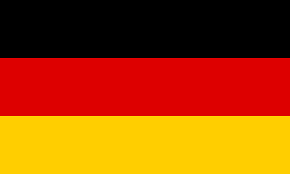In most men, at about 50 years old, the prostate begins to increase in size. This normally soon stops, or progresses slowly.
You can help to minimise the discomfort if, as well as following the treatment (if necessary), you adapt the following advice to your daily life:
WE RECOMMEND:
- Alternate cold and hot water sitz (seated) baths.
- Sitz baths with thyme and bicarbonate steam.
-Moderate walking.
-As an herbaceous medicinal treatment, the first choice is PHYTOSTEROL of PRUNUS HERBOREA/PYGEUM AFRICANA (Tebetane Compound, 2 every 12 hours).
-Infusion of birch leaves, thyme or green tea .
-Foods: - Marrow seeds , drinking apple vinegar , weakened with water.
-Taking ZINC pills in sweetened zinc form, 50 mg every 12 hours.
Curiously, the prostate is the only organ of the body where zinc is produced.
- Foods enriched with zinc are: meat, liver, fish, oysters, beer ferment, marrow seeds and eggs.
- Eating courgettes, parsley, turnip, melon, lettuce, celery, watercress, fennel or dandelion.
- Alcohol. The maximum recommended for a man: 1 beer or two glasses of wine daily.
- Drink liquid at regular intervals, to avoid stones and infections.
- Always urinate when you feel the need to. Avoid putting it off whenever possible.
AVOID:
• Hot and spicy foods.
• Constipation.
• Excess sexual relations daily.
• Control the frequency of masturbation and excess of coitus interruptus (withdrawal), in the sexual relationship.
• Excess coffee, alcohol, especially beer, and tobacco.
• Packaged juices, due to their preservative content.
• Long journeys
• Constantly riding bicycles or horses.
• Reduce foods which increase cholesterol - this improves the prostate.
• Reduce animal fats (saturated fats). Consumption of these increases growth of the prostate, both benign and malignant.
• Avoid spending a lot of time seated. Take regular walks to decongest the pelvic and perineal areas.
• Try to avoid becoming excessively cold by spending time in low temperatures.
• If you are sexually active, this should include ejaculation. This reduces pelvic congestion.
• If it takes you a few seconds to begin to urinate, stay calm. Try to exert progressive pressure with the abdominal musculature, but not abruptly.
PROSTATE CANCER? – NO THANKS
(NATURAL PREVENTIVE TREATMENT)
FOODS WHICH PREVENT PROSTATE CANCER (ANTIOXIDANTS):
Garlic, raw tomato, but even better, fried (contains lycopene). Green tea (250- 500 ml per day).
Germinated soya: salads, soya sauce, soya milk. Selenium: this is a mineral which is found in wholemeal wheat bread, walnuts, skimmed milk, salmon, cheese, yeast.
Vitamins E, D and B17 (known as laetrile), all the oils, walnuts, hazelnuts, tuna, salmon, avocado, maze, carrots, pollen, royal jelly, elder, cat's claw, pomegranate juice, nigellia sativa (fennel flower or black cumin), aloe- vera, marigold, liquorice, beetroot, cinnamon, noni juice, red tea, curchuma, fenugreek, bios (milk products), copper, Actimel, 4life, - Transfer Factor Plus, wheat, eucalyptus, cane sugar, ginseng, saw palmetto, mustard, zinc, carotene, bees' honey, sea salt, Biocomplex, Auxina A + E, marrow seed oil, hot red peppers, pros-aide, mastic tree, sheep's testicle cells, polyunsaturated fat acids, blue fish, white meat, isoflavona (phitoestrogens, natural compounds produced from plants), apricots, apples, grapes, water-melons, certain nuts and almonds.
ANTIOXIDANTS:
The 10 most frequently consumed antioxidant foods are: avocado, broccoli, cabbages in general, carrots, citrus fruits, grapes, onions (purple ones are the best), spinach, tomatoes and berries: blackberries, strawberries, raspberries and cranberries.
What is the PSA?
MALE GENITOURINARY APPARATUS
ADVICE FOR YOUR HEALTH
WHAT YOU SHOULD DO
If you are over 50 (or 40, and there has been a case of prostate cancer in your family), go to your doctor so that he/she can inform you about the suitability of carrying out a special exploration, which consists of a rectal touch and a PSA analysis, as part of an annual check-up.
DIAGNOSIS?
Tell your doctor about any urinary symptom of pain, urgency, change in mictional frequency (diurnal or nocturnal), or in the urinary flow.
WHAT YOU SHOULD AVOID
Accepting that changes in the mictional pattern are a natural part of the ageing process.
Putting off or avoiding annual check-ups.
This information is provided so that doctors can use it as an educational measure for patients, but never as a substitute for a medical consultation.
What is the PSA?
The prostate gland produces a protein called the prostate specific antigen, or PSA, which is measured using a simple blood analysis.
How important is a rise in the PSA?
In prostate diseases, the gland produces more PSA than normal. The increase in PSA may be governed by disorders such as prostatitis (inflammation of the prostate), benign prostatic hypertrophy (BPH) (increase in size of the prostate not due to cancer) or prostate cancer .
What must I do if the PSA rises?
In all probability, your doctor will decide to perform more tests to find out the cause of the increase in PSA. The following are the most frequent, either separately or combined:
Rectal Touch (RT): the doctor inserts his finger into the rectum to explore the prostate and detect any abnormalities.
Urine analysis: urinary infections can be detected using this analysis.
Ultrasound scan: by inserting a rectal probe connected to an ecograph, the doctor can see and measure the prostate and prostate abnormalities.




























